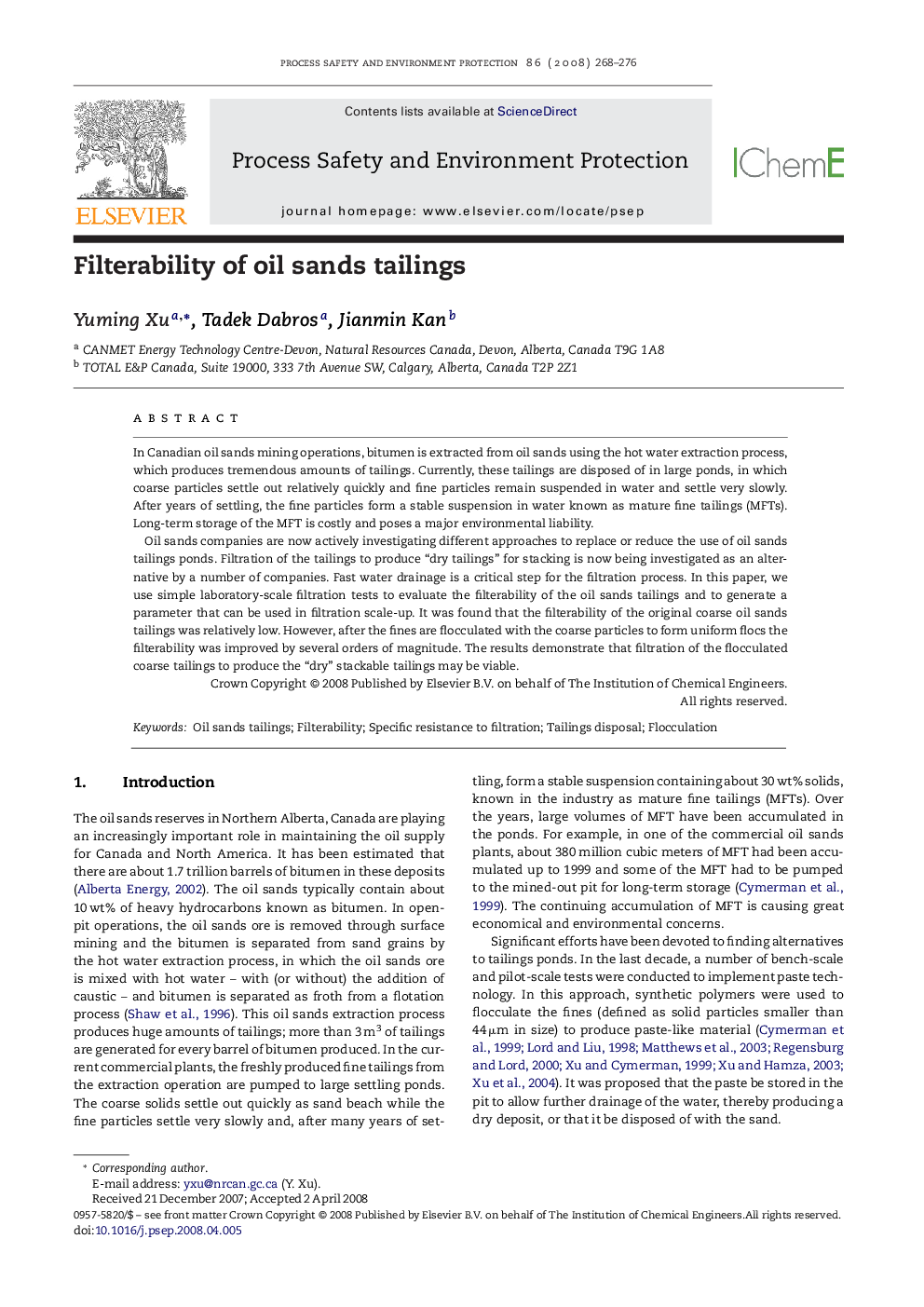| Article ID | Journal | Published Year | Pages | File Type |
|---|---|---|---|---|
| 588764 | Process Safety and Environmental Protection | 2008 | 9 Pages |
In Canadian oil sands mining operations, bitumen is extracted from oil sands using the hot water extraction process, which produces tremendous amounts of tailings. Currently, these tailings are disposed of in large ponds, in which coarse particles settle out relatively quickly and fine particles remain suspended in water and settle very slowly. After years of settling, the fine particles form a stable suspension in water known as mature fine tailings (MFTs). Long-term storage of the MFT is costly and poses a major environmental liability.Oil sands companies are now actively investigating different approaches to replace or reduce the use of oil sands tailings ponds. Filtration of the tailings to produce “dry tailings” for stacking is now being investigated as an alternative by a number of companies. Fast water drainage is a critical step for the filtration process. In this paper, we use simple laboratory-scale filtration tests to evaluate the filterability of the oil sands tailings and to generate a parameter that can be used in filtration scale-up. It was found that the filterability of the original coarse oil sands tailings was relatively low. However, after the fines are flocculated with the coarse particles to form uniform flocs the filterability was improved by several orders of magnitude. The results demonstrate that filtration of the flocculated coarse tailings to produce the “dry” stackable tailings may be viable.
